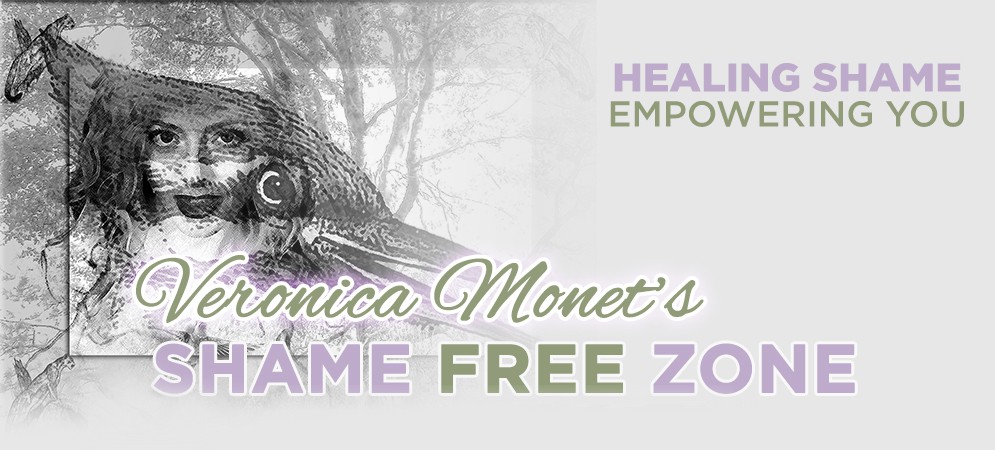
You have heard yourself say it many times, this resolution to do better next time. Each time you fall down, you promise yourself and anyone else who will listen, that this is the last time. You know better now. You will not do it again.
But you do.
So why is it that so many of us work so hard to be the best and do the best we possibly can, only to fail over and over again?
Early in life, most of us experience the shaming which accompanies admonishments to “grow up” and “learn to control yourself.” The innocent and spontaneous emotions which arise in us are dominated and silenced in an effort to control that which is inconvenient and unwieldy.
Ironically, the more we attempt to control what we feel and do, the less able we are to achieve the results we desire. Like sand slipping between our fingers, the tighter our grip on what we desire, the less able we are to hold onto it. We may be accustomed to applying this time proven principle to our relationships and possessions but how often do we apply it to our quest for self-improvement and spiritual growth? Employing too much self-will when relating to ourselves can be just as damaging as it is in our other relationships.
For instance, let’s say you want to control your temper. That seems like a worthwhile goal which most people would applaud. But did you know that “controlling your temper” can actually lead to more angry outbursts and unpredictable fluctuations in mood?
I like to joke that this is why treatment for anger problems is termed “anger management,” not “anger repression” or “anger control.” Repression and suppression of emotions actually perpetuate the feelings we are attempting to avoid. Rather than deal with those emotions and eventually move on, our attempts to control emotions tend to imprison us with our negative feelings indefinitely.
Not only does the energy of control exacerbate the very qualities it is intended to diminish, our efforts at control set into motion a cycle of shame which perpetuates our problem behaviors. As we fail to live up to our expectations and our resolutions , most of us will feel less and less confident. We may begin to doubt ourselves and this can lead to a deepened sense of shame. Contrary to some of the shaming techniques employed by parents, partners and the culture, shame does not evoke the positive changes we anticipate.
“You cannot shame or belittle people into changing. This means we can’t use self-hate to lose weight, we can’t shame ourselves into becoming better parents and we can’t belittle ourselves or our families into becoming who we need them to be. . . Shame corrodes the very part of us that believes we are capable of change.” [Brene’ Brown’s I Thought It Was Just Me, page 197]
So exactly how do we make the positive changes we desire?
Ms. Brown goes on to explain “the power of connection and the dangers of disconnection. Disconnection is both the source and consequence of shame, fear and blame.” [p. 241] When we do not connect with ourselves empathically, we cannot achieve the change we crave. Ironically, it is when we stop blaming, judging and criticizing ourselves and others that the conditions required to effect real change can begin to take form. Here are five steps to stop trying to “make” yourself do whatever it is you want yourself to do, and start nurturing the positive changes you want in your life.
How to Get What You Want by Giving Up Control of Self and Others
1. Breathe and Connect to Your Feelings
2. Feel Empathy and Compassion for Yourself
3. Replace Negative Thoughts with Hopeful Scenarios
4. Extend Empathy to Others
5. Let Go of Control and Practice Acceptance
These steps can take you from the hell of repressed emotions, frustrated needs and projected blame and shame. When we insist upon controlling ourselves instead of accepting ourselves, we actually lose the control we seek to gain. It is only by accepting and loving ourselves unconditionally, that we can create the circumstances conducive to positive change. Shame is a barrier to positive change. Shame is a barrier to compassion. Shame is a barrier to connection to self and with others.
Additionally, controlling behaviors act like barriers to our goals. It is very sad when I see someone invest so much energy and enthusiasm for the constructive change they desire, only to return to the same destructive patterns they are determined to escape. Resolution and positive thinking have their place but when it comes to thoroughly entrenched habits of thought or action, it is usually more productive to connect with ourselves with empathy and compassion and then let go. Letting go is the key to implementing any new skill set – even a motor skill such as tennis. Once we comprehend what needs to happen, once we have practiced the new behavior, what remains is to let go and allow our more intuitive side to guide us.
This may be one of the most difficult concepts to teach another. It runs counter to our training and our culture. Yet it is one of life’s ironies that we must surrender the very thing we wish to gain.



